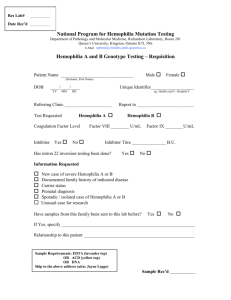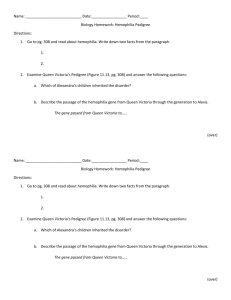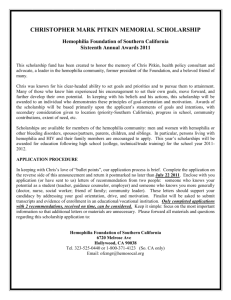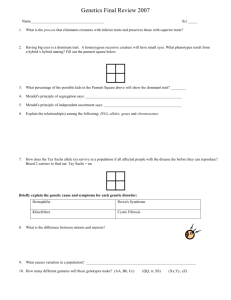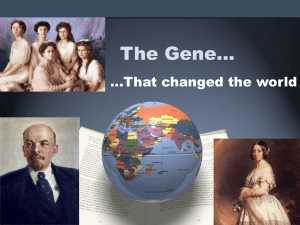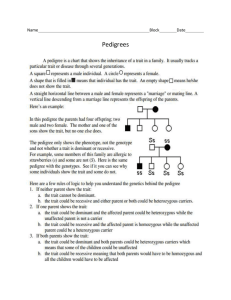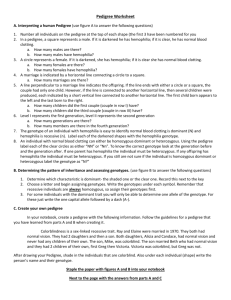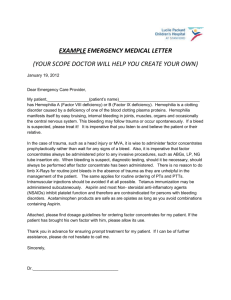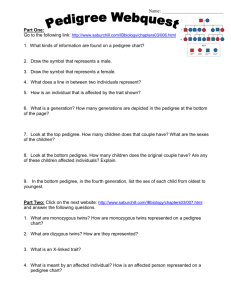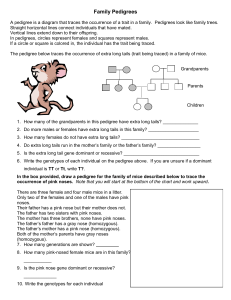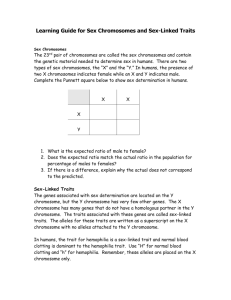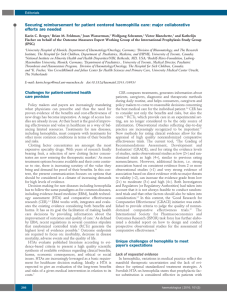Hemophilia
advertisement
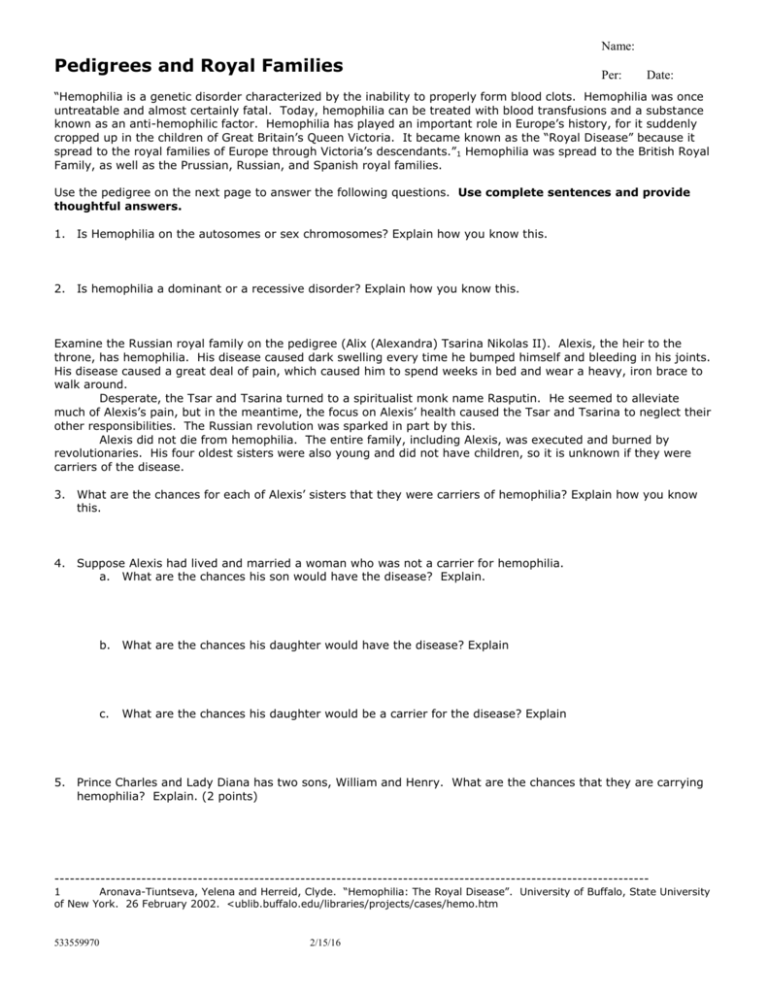
Name: Pedigrees and Royal Families Per: Date: “Hemophilia is a genetic disorder characterized by the inability to properly form blood clots. Hemophilia was once untreatable and almost certainly fatal. Today, hemophilia can be treated with blood transfusions and a substance known as an anti-hemophilic factor. Hemophilia has played an important role in Europe’s history, for it suddenly cropped up in the children of Great Britain’s Queen Victoria. It became known as the “Royal Disease” because it spread to the royal families of Europe through Victoria’s descendants.”1 Hemophilia was spread to the British Royal Family, as well as the Prussian, Russian, and Spanish royal families. Use the pedigree on the next page to answer the following questions. Use complete sentences and provide thoughtful answers. 1. Is Hemophilia on the autosomes or sex chromosomes? Explain how you know this. 2. Is hemophilia a dominant or a recessive disorder? Explain how you know this. Examine the Russian royal family on the pedigree (Alix (Alexandra) Tsarina Nikolas II). Alexis, the heir to the throne, has hemophilia. His disease caused dark swelling every time he bumped himself and bleeding in his joints. His disease caused a great deal of pain, which caused him to spend weeks in bed and wear a heavy, iron brace to walk around. Desperate, the Tsar and Tsarina turned to a spiritualist monk name Rasputin. He seemed to alleviate much of Alexis’s pain, but in the meantime, the focus on Alexis’ health caused the Tsar and Tsarina to neglect their other responsibilities. The Russian revolution was sparked in part by this. Alexis did not die from hemophilia. The entire family, including Alexis, was executed and burned by revolutionaries. His four oldest sisters were also young and did not have children, so it is unknown if they were carriers of the disease. 3. What are the chances for each of Alexis’ sisters that they were carriers of hemophilia? Explain how you know this. 4. Suppose Alexis had lived and married a woman who was not a carrier for hemophilia. a. What are the chances his son would have the disease? Explain. b. What are the chances his daughter would have the disease? Explain c. What are the chances his daughter would be a carrier for the disease? Explain 5. Prince Charles and Lady Diana has two sons, William and Henry. What are the chances that they are carrying hemophilia? Explain. (2 points) -------------------------------------------------------------------------------------------------------------------1 Aronava-Tiuntseva, Yelena and Herreid, Clyde. “Hemophilia: The Royal Disease”. University of Buffalo, State University of New York. 26 February 2002. <ublib.buffalo.edu/libraries/projects/cases/hemo.htm 533559970 2/15/16 533559970 2/15/16 533559970 2/15/16
